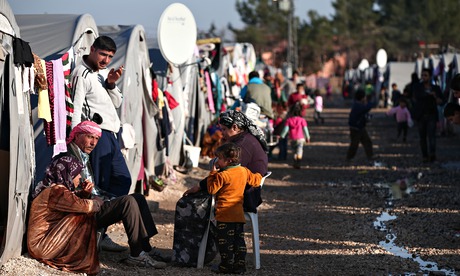The UK government is taking part in a pioneering international aid project which could see consignments of maggots sent to crisis zones such as Syria as a simple and effective way to clean wounds, it has been announced.
So-called maggot therapy was been used in the first world war, when their efficacy in helping wounds heal was discovered by accident, and it is sometimes used in the NHS, for example to clean ulcers.
The initiative, co-sponsored by the Department for International Development (DfID), will develop techniques to help people in conflict zones or areas affected by humanitarian crises to use maggots where other medical facilities might not be available, such as Syria and South Sudan.
The project, also supported by the US government aid agency USAID, is intended to provide “do it yourself” maggot laboratories to send to such areas.
The treatment uses disinfected larvae of greenbottle blowfly, which are applied to wounds in mesh bags. This keeps the maggots in one place, but allows them to clean the dead tissue and disinfect the area.
DfID said the hope was each field laboratory could treat 250 wounds a day.
The idea came from a project called the Humanitarian Grand Challenge fund, financed by the UK, US and the Dutch government. Griffith University in Queensland, Australia, has been awarded US$250,000 (£196,000) to develop the maggot project.
Penny Mordaunt, the international development secretary, said: “People living through conflict and humanitarian crisis are still dying from wounds that could so easily be healed with the right access to care.
“This innovative update on a simple treatment used in the first world war trenches is already saving lives and has the potential to save so many more.
“I am proud that through the Humanitarian Grand Challenges and with the support of USAID, UK aid is nurturing pioneering ideas that will allow us to deliver aid more effectively now and in the future.”
A DfID statement on the plan notes that secondary infections from wounds kill many people and others lose limbs.
The use of maggots to clean wounds has existed for centuries, and they were used for this purpose in the US civil war. An American surgeon who witnessed their use, William S Baer, later carried out experiments on the use of blowfly maggots to clean away dead tissue.











